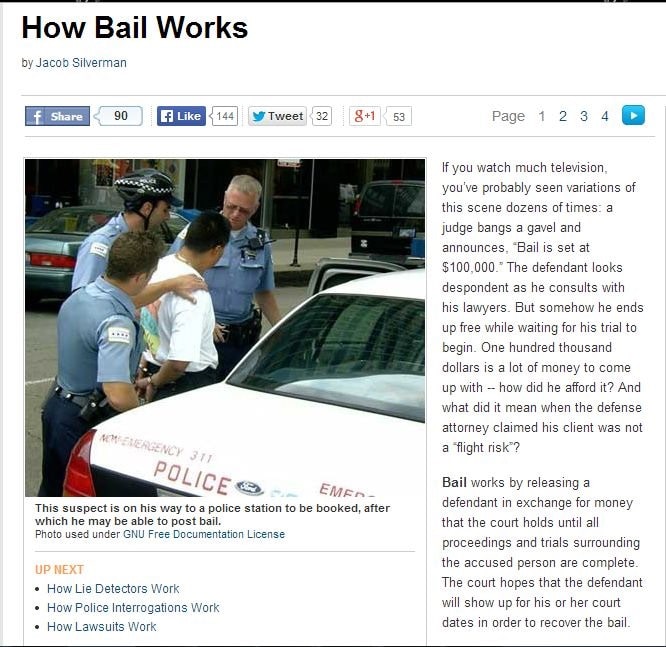On Arrests and Bail Bonds in Fort Worth: Understanding How It Works
Texas law has it that after an arrest, trial does not immediately ensue—most of the time, the defendant will have to wait in detention until a judge can be scheduled to hear his case. However, there are many cases where the said defendant could walk free back into the streets of Cowtown, until the trial day that is, and this is where bail bonds in Fort Worth come into play.
What is the bail system?
Essentially, bail is money or assets used as collateral for the temporary release of a defendant within the period between his arrest and trial. When you bail someone out, think of the bail as a security deposit, the court as the lender, and you as the guarantor that the loan will be paid, or in this case, that the accused will adhere to the provisions agreed upon.
What is the process?
After the arresting officer nabs the accused, he will be “booked” at the police station, where his personal information will be registered in the crimes and misdemeanors records. In the case of less serious offenses, the defendant may be able to post bail immediately after having been booked, otherwise a set amount of waiting time is required.
Types of Bail
In an article in Howstuffworks.com, contributor Jacob Silverman details the different types of bail:
- Cash Bail – Cash bail means that the accused pays the full amount of bail in cash. Sometimes the court accepts checks or even a credit card.
- Surety Bond – Also called a bail bond, a surety bond can be used for any amount of bail, but it is especially useful when the accused can’t afford to pay his or her bail. This type of bail often involves a friend or relative of the accused contacting a bail agent, also known as a bail bondsman.
- Property Bond – Sometimes a defendant can provide some property to act as a bond. In these cases, the court gets a lien (essentially a legal claim) on the property in the amount of the bail.
During Trial
Should the defendant diligently attend all his hearings and maintains the terms of his release, the court will refund the entire bail amount. If the accused flees, the guarantor or bail bonds provider may send a recovery agent, typically known as a bounty hunter, after the fugitive to avoid a considerable financial loss.
If you know anyone who broke Texas law and is awaiting trial, decide carefully whether or not you want to guarantee this person’s appearance in court. If you choose the affirmative, but don’t exactly know how to post Fort Worth bail bonds, you can always rely on a third-party bondsman for help.
(Source: How Bail Works, How Stuff Works)



